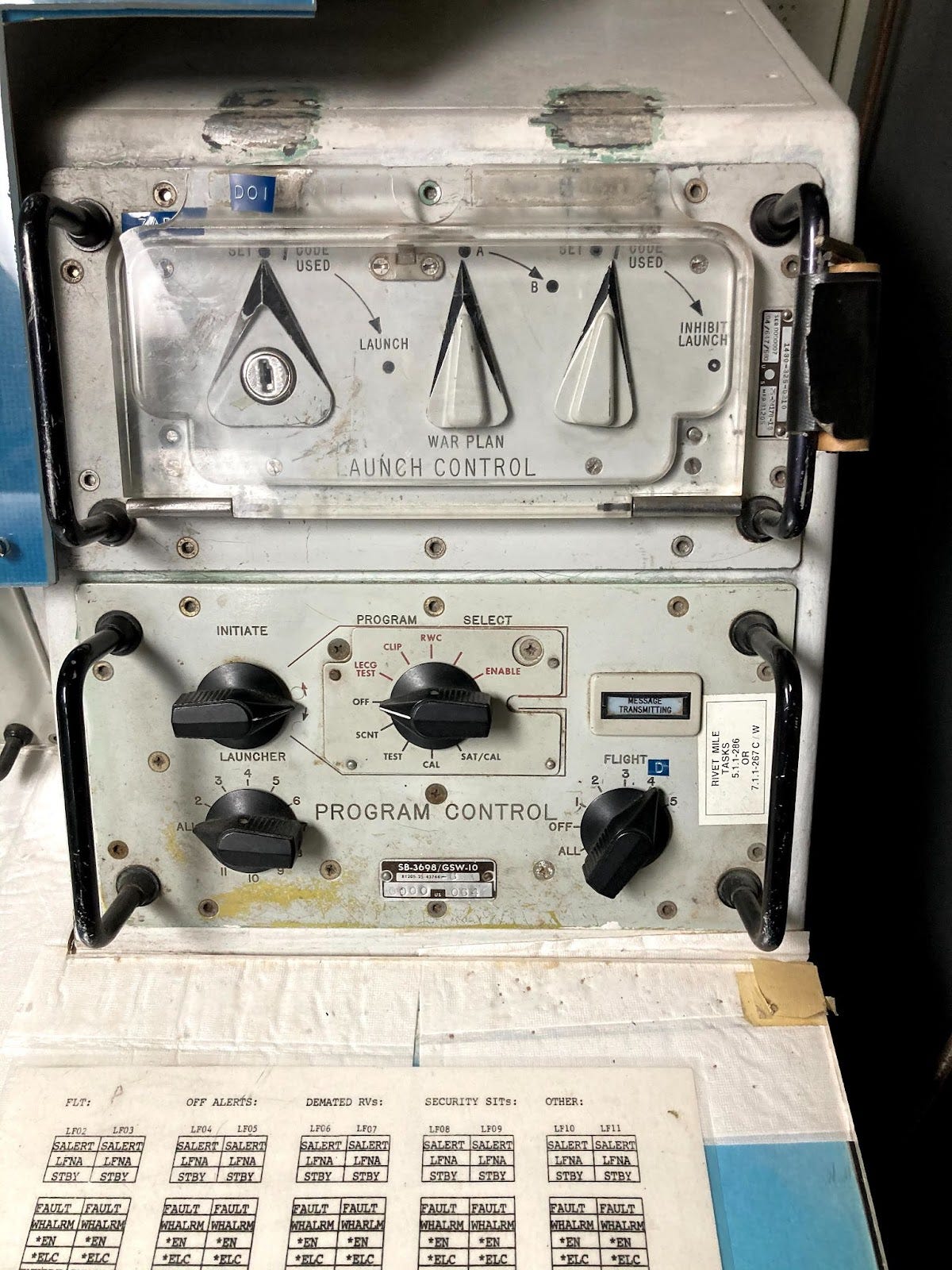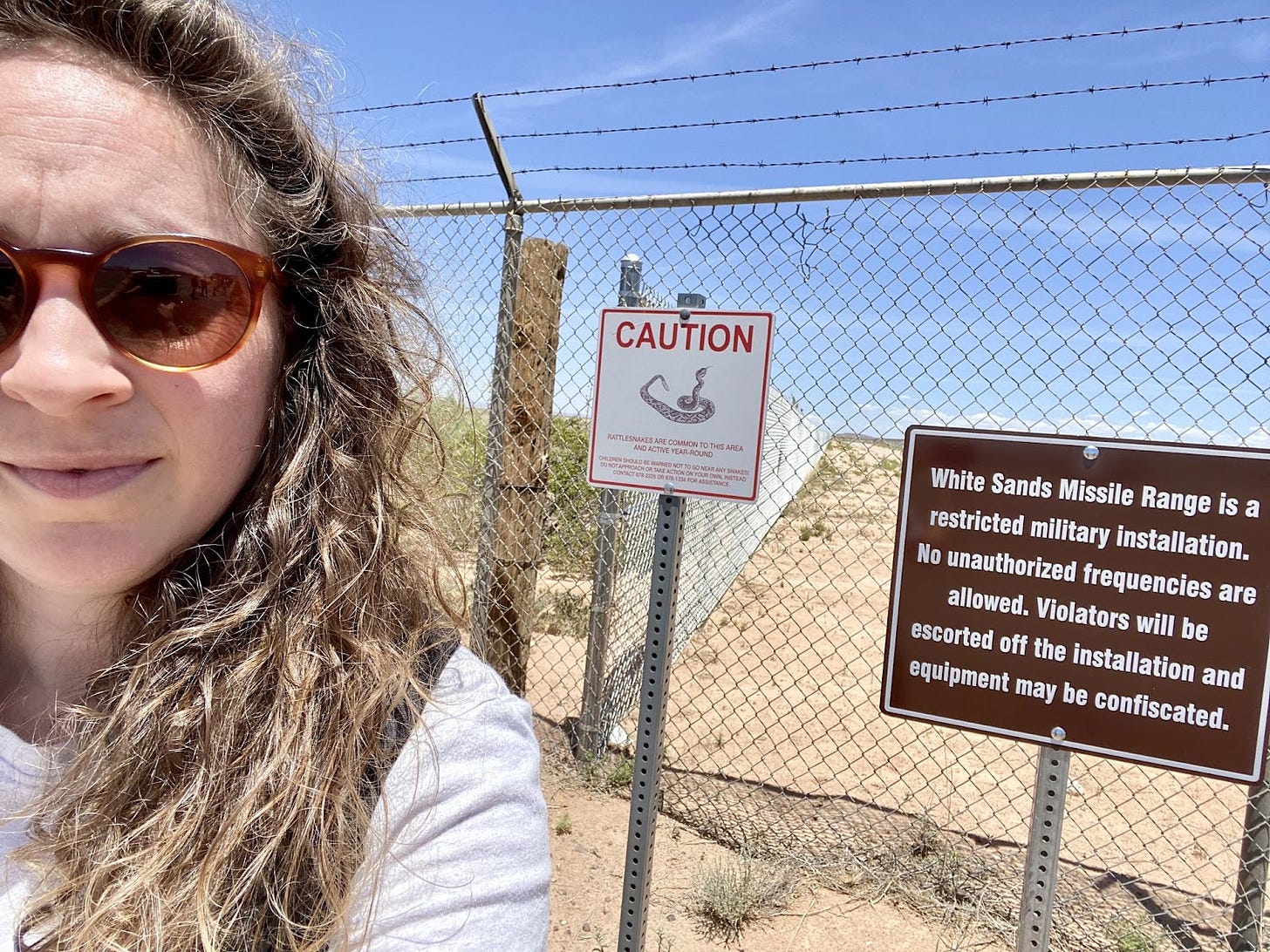The Gunbelt, Union-Busting, and Inkstick in Utah!
Tracking "right-to-work" moves at defense contractors, and how to watch Inkstick vs. Utah and Northrop Grumman on Zoom
Hi!
Greetings from Atlanta and welcome to Military-Industrial America, a new newsletter from me, Taylor Barnes, Inkstick Media’s field reporter for the military-industrial complex.
This is a journalistic beat I’ve been cooking up for years. Most outlets cover military affairs and the defense industry as a Pentagon beat – press passes, briefings with officials, inside-the-beltway events, etc. In the financial press, you’ll see coverage of Pentagon contractors through their quarterly earnings calls and SEC filings. That’s all valuable, and I learn a lot through that sort of reporting. Here at Inkstick, we instead cover the nearly $1 trillion US national security budget through the lens of the people and places tied up in it. Endless war and tremendous military spending are a defining feature of American life, and few people are not touched by it. But some people and places are touched much more directly than others. That’s where our reporting dives in.
This newsletter will be a place for us to share our new stories, what we’re reading and following, and behind-the-scenes notes from our reporting. Thank you for joining us!
Top Defense Contractors Favor Relocations, Expansions in “Right-to-Work” States
Strike picket line, late 1950s -- International Association of Machinists, District Lodge 727, San Fernando Valley History, Special Collections and Archives, University Library, California State University, Northridge.
Today on Inkstick we’re publishing a new investigation into labor moves at the “Big Five” defense contractors. We wanted to know if those companies were favoring so-called “right-to-work” states in their corporate expansions and relocations, a move that allows them to chip away at already dwindling union strength in the sector. We systematically reviewed hundreds of pages of company press releases, reports in trade magazines, and reams of ribbon-cutting photos of local officials and company executives touting the new jobs a plant would bring to town. You can read our findings here, and explore our map of such corporate moves.
We suggest reading this new story alongside our investigation published in June: Union Strength Dwindles at Top Defense Contractors.
Inkstick Media in Utah: Watch us on Zoom!
Intercontinental Ballistic Missile launch control. Courtesy of Elisabeth Eaves.
Let’s imagine you’re a company that makes nuclear weapons. You get billions of dollars from the federal government to do so, and in addition to that, you seek and receive subsidies from a state government to manufacture those weapons. The purpose of those subsidies is to attract and create jobs in the state, and those job creation requirements are spelled out in a contract with the government. One day, a reporter submits a public records request to see the contract; the government throws a black box over the page that spells out that crucial information.
If you were an attorney for that company or the government, how would you go about defending that redaction? We’ll find out on Thursday, when Inkstick Media and our attorneys will be at the State Records Committee in Taylorsville, Utah. If you’d like to hear Northrop Grumman and Utah’s Governor’s Office of Economic Opportunity in their own words, you can join us on Zoom here starting at 9am local/ 11am ET. We don’t know the exact time of our hearing – several cases will be heard over the day — but I will do my best to let you know when we’re up on Threads (tkbarnes) and Twitter (@tkbarnes).
What I’m Reading
Safety Lapses at Los Alamos National Laboratory
Alicia Inez Guzmán, a reporter at the nonprofit outlet Searchlight New Mexico, has kicked off an important series exploring how the United States’ $2 trillion project to restock its nuclear arsenal is radically reshaping the local economy around Los Alamos. I also really liked her fantastic reporting on the community college to nuclear workforce pipeline — and how even the schools acknowledge the work can be unhealthy.
How America Broke its War Machine
Historian Michael Brenes has a compelling and accessible history of the US defense industry in Foreign Affairs. Pegged to the timely issue of US arms manufacturing for Ukraine, Brenes breaks down the kinds of choices over recent decades that have led to labor shortages at home, and supply gaps in the weapons Ukraine is requesting.
Thank You for Reading!
If you’re not a defense contractor or a government entity, we’d love for you to consider funding our work. Endless war is a defining feature of American life, and we believe there should be a public interest media outlet dedicated to covering it. You can read more about our work in our impact report.
Thoughts, comments, story suggestions? Send them our way. We may publish them in a future newsletter.
Taylor







